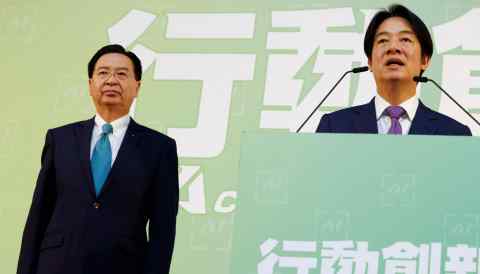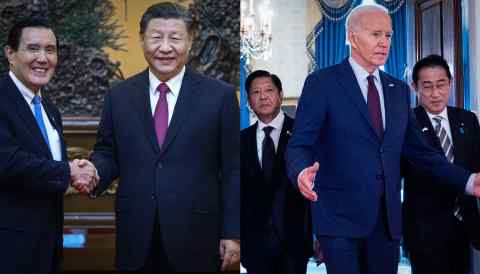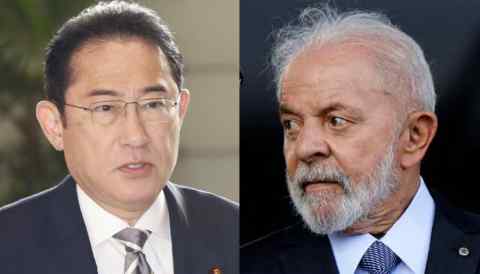
TAIPEI (Reuters) -- Taiwan reported renewed Chinese military activity near the island on Saturday with 12 aircraft crossing the sensitive median line of the Taiwan Strait, a day after U.S. Secretary State Antony Blinken ended a visit to China.
The United States is Taiwan's most important international supporter and arms supplier despite the absence of formal diplomatic ties. Blinken said he had stressed the "critical importance" of maintaining peace and stability across the strait while in China.
Democratically governed Taiwan has faced increased military pressure from China, which views the island as its own territory. Taiwan's government rejects those claims.
Taiwan's defence ministry said that from 9:30 a.m. (0130 GMT) on Saturday it had detected 22 Chinese military aircraft, including Su-30 fighters, of which 12 had crossed the median line to Taiwan's north and centre.
The line once served as an unofficial border between the two sides over which neither sides' military crossed, but China's air force now regularly sends aircraft over it. China says it does not recognise the line's existence.
Taiwan's defence ministry said the aircraft were involved in "joint combat readiness patrols" with Chinese warships, adding that Taiwanese aircraft and ships responded "appropriately". It did not give details.
China's defence ministry did not answer calls seeking comment outside of office hours on Saturday.
Taiwan's armed forces are well-equipped and well-trained but dwarfed by those of China's, especially the navy and air force, which respond almost daily to Chinese missions.
China considers Taiwan the most important issue in its relations with the United States, and Beijing has repeatedly demanded Washington end weapons sales to Taiwan.
Taiwan President-elect Lai Ching-te takes office on May 20 after winning January's election. Beijing considers him a dangerous separatist and has rebuffed his repeated calls for talks.
Lai said on Thursday that China should have the confidence to talk to Taiwan's legally elected government. Like outgoing President Tsai Ing-wen, Lai says only Taiwan's people can decide their future.







